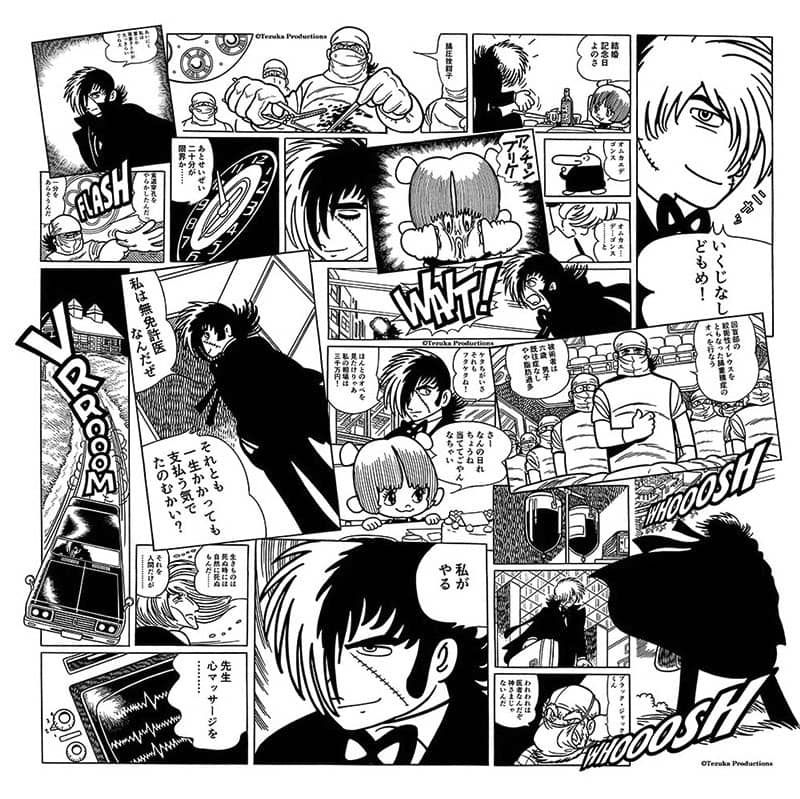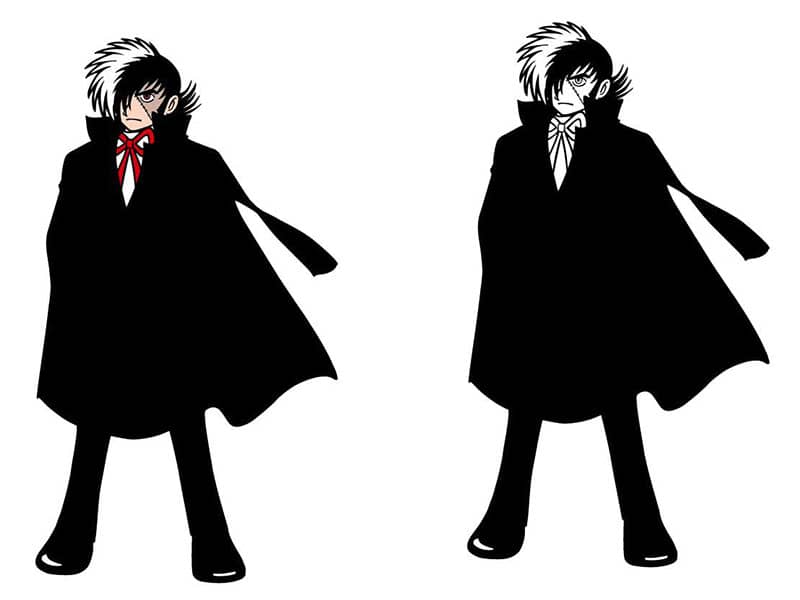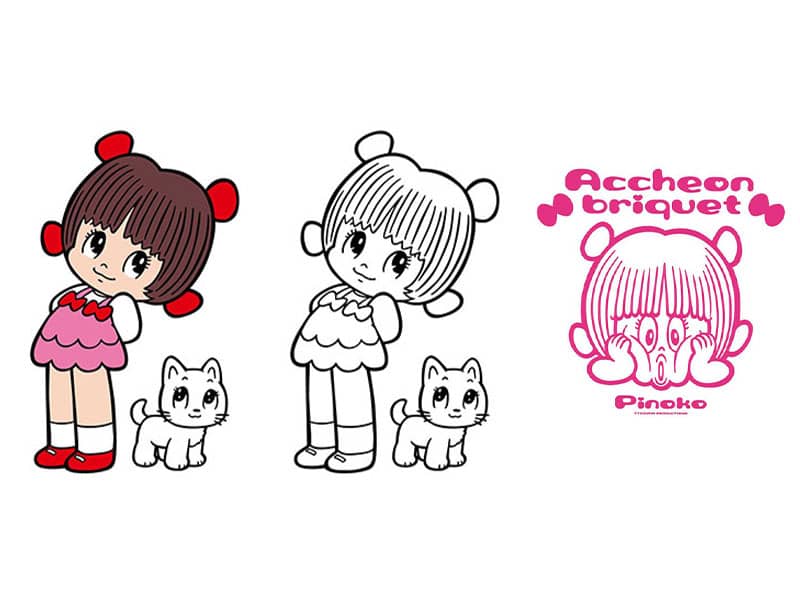Countless alluring graphics have adorned UT items to date. As we mark UT’s 20th anniversary this year, an archive project has started to reprint some of our past offerings. What kinds of feelings and emotions rest in the motifs that have transcended time and are loved by people all over the world? Let’s explore this through the words of the creators and those involved. This time we are focusing on the manga Black Jack, which appeared on UT in 2006. This is a masterpiece work by the “god of manga,” Osamu Tezuka. We spoke with the president of Tezuka Productions, Takayuki Matsutani, who also served as Osamu Tezuka’s manager for 16 years.
When you want to convey something to children there is no better medium than manga.
Q. The character Black Jack is used on the T-shirt this time. What was the message Osamu wanted to convey through this character?
A. “A doctor’s job is not about prolonging people’s lives. I think what is important is how they can help a patient effectively use their remaining life and limited time. That is what I wanted to portray as being a doctor’s job.” That is a comment Osamu left us regarding Black Jack. In other words, I believe he wanted to highlight the preciousness and importance of life.

A collection of famous scenes from Black Jack.
Q. What was Osamu most particular about in creating the character Black Jack?
A. Osamu had this to say about Black Jack. “Half of this lone wolf unlicensed doctor’s hair is white, and half is black. He has a distinct scar on his face and always wears a black coat that makes him look uncomfortably hot. It is a drawback to have so many distinguishing features; however, this level of flamboyance is necessary for this eccentric character who seemingly operates in the shadows.” At the same time, he also thought this level of cuteness was important for a character in a manga for children. In order to achieve this desired cuteness, it is said he drew dozens of pictures, tearing them up and throwing them away until he came up with a drawing he was satisfied with. It also seems he felt the Black Jack character Pinoko was one of his best works. This cuteness is expressed not only in the drawings but in the phrase “Accheon Briquet” used in the manga. I believe the attractiveness of the characters, in addition to the story, was a major factor in getting readers to empathize with the work. After all, he was particular about creating characters that readers would enjoy.

The main character, Black Jack.

The cute supporting character, Pinoko.
Q. So, what do you think manga was to Osamu?
A. About two years before his death, there was a time when he had no work at all for children’s weekly magazines (though he was drawing for a few monthly magazines and magazines for an older market). At that time, he told me, “Mr. Matsutani, Weekly Shonen Champion, another magazine, anything is OK; please decide on something.” Osamu was born in 1928 and experienced the war and air raids. That is why he wanted children in particular to read his manga (he called children “people of the future”). I believe he really wanted to convey how tragic war is, how grateful one should be for peace, and the importance of all life on earth, not only humans but plants and animals as well. I think he thought there was no better medium for conveying something to children than manga.
Q. If Osamu was still alive, what kind of works do you think he would be drawing?
A. I don’t know. I think he would be creating some extraordinary works. Currently, we are experiencing the COVID pandemic, and a war is going on. I am sure he would be writing furiously as he would not be able to sit still.
PROFILE
Takayuki Matsutani, born in Yokohama city in 1944. President of Tezuka Productions. He joined Tezuka Productions in 1973 after becoming the editor in charge of Osamu Tezuka for the weekly magazine for adults, Manga Sunday. He then became Osamu Tezuka’s manager. He served in that position for 16 years until Osamu Tezuka’s passing.
The allure of the “real thing” discovered through reprinted T-shirts
【20th UT ARCHIVE vol.1 Daido Moriyama】
【20th UT ARCHIVE vol.2 The Genius Bakabon】
【20th UT ARCHIVE vol.3 Sonic the Hedgehog】
【20th UT ARCHIVE vol.4 PAC-MAN】
【20th UT ARCHIVE vol.5 Black Jack】
©Tezuka Productions












